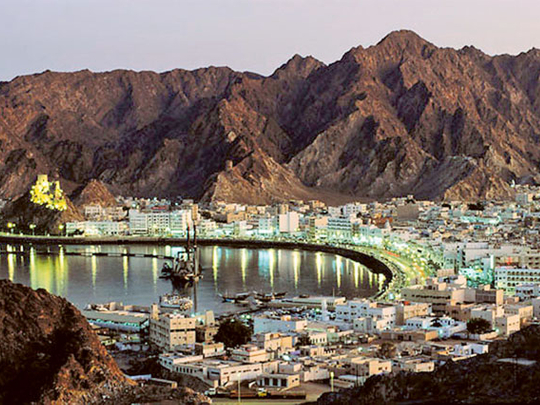
Muscat: Oman’s Ministry of Finance is waiting to make a difficult decision on the determination of the oil prices for 2015 budget in light of a dramatic fall in oil prices below $70 a barrel as well as Opec’s (Organisation of the Petroleum Exporting Countries) decision not to cut production.
An official at the ministry told a local online newspaper, Atheer, that the government is considering the possibility of revising the forecast price of oil per barrel in the 2015 budget to $70 in order to limit deficit.
The official explained that the sultanate conducted a number of cuts to its budget to limit the deficit, including spending cuts on a number of institutions and to reconsider the price of gas, which was raised recently.
Oman will also postpone a number of projects as well as privatise some state-owned companies, which are valued at an estimated 5 billion riyals.
The sources confirmed that the Sultanate is struggling with its budget to maintain the development plans aimed at improving the conditions of its citizens.
Moreover, the proposal for a two per cent levy on the billions of riyals that expatriates send home every year that was proposed by Oman’s elected Consultative Council, the Majlis Al Shura, is still being negotiated in the corridors of the Finance Ministry. The move would hit 1.9 million expats, the report said, adding that it may drive an increase in black market money transfers.
Meanwhile, Salim Al Hakmani, chairman of the Economic Committee of the Shura Council, affirmed that the issue of salary increments in the government sector and employment concerns that have been raised in the discourse on the 2015 budget are “exaggerated”, adding that the lifting of fuel subsidies is unlikely in the near term.
Al Hakmani said that the government negotiated with a lot of companies, and has made great strides in adjusting prices to sell gas to those companies, which will reflect positively on state revenues.
The Majlis Al Shura has called for more pressure on those companies that do not respond positively during the negotiations. Al Hakmani denied cuts in spending in the 2015 budget, stressing the continuation of projects and spending on health and education and other sectors that serve social development.
He noted that the talk about low oil prices are not likely to lead to a decline in the standard of living for the citizens or their salaries, addressing public concerns about the matter.
“The new budget includes about 5 billion riyals for ongoing expenses, compared to 2 billion riyals in 2011, which will not damage the lives of citizens in terms of wages and promotions,” said Al Hakmani. “And in case of the decline in oil prices, the Sultanate needs in the medium term, not the short term, to review its policies to cope with the tumbling oil prices.”
The writer is a journalist based in Muscat.












